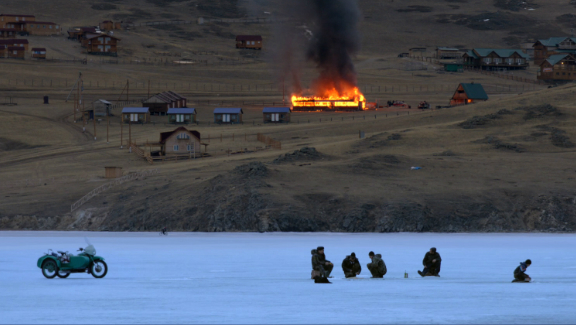Aquarela
Aquarela Director/ Viktor Kossakovsky Watched in Theaters Rating 2.5/5 With Aquarela, director Viktor Kossakovsky may have invented a brand-new documentary genre: climate chaos porn. With its diamond hard icebergs, its velvety black bodies of water, and its spasms of ocean spraying the camera lens, the cumulative torrential effect of all that liquid is positively orgiastic. But while the imagery is busy pleasuring itself in a kind of seductive sadomasochistic bath, it forgets to ground the viewer with any kind of context. Gradually, yes, you become aware that the director means to preview what it will look and feel like once all the planet’s ice melts and the seas boil and the cataclysmic hurricanes drown our cities, but getting to that apocalyptic climax is a curiously desultory narrative experience. In fact, there is no narrative at all, nothing but a series of puzzling encounters with ice, oceans, and floods. This is a film meant to be read about before seen. If you’re so inclined, here’s the link that explains where the film is shot and what is the driving vision behind it (specifically, that the main character is an elemental force of nature, water, in all of its dangerous beauty). Humans are no match for water’s destructive power, Kossakovsky wants to tell us. But then why do so many of his lengthy scenes tend toward monotony rather than terror? The film begins on frozen Lake Baikal (but you won’t know this from watching the film) where there seems to be an epidemic of cars and their [...]










